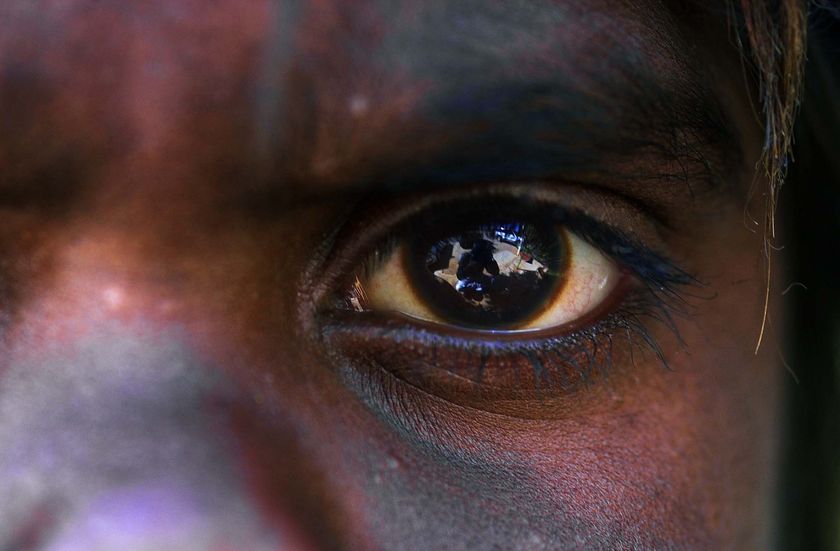Evidence: A way forward for Indigenous health research
Opinion on the state of Indigenous health research by Ms Amanda A. Jayakody, Laureate Professor Robert W. Sanson-Fisher and Dr Jamie Bryant from the Priority Research Centre for Health Behaviour School of Medicine and Public Health, Faculty of Health, University of Newcastle.
The University of Newcastle's Centre for Health Behaviour Director Laureate Professor Robert Sanson-Fisher recently highlighted in the Medical Journal of Australia an alarming lack of effective strategies to decrease smoking rates among pregnant Indigenous women and the need for rigorous studies to test innovative approaches to tackle the issue.
Opinion 'Evidence: A way forward for Indigenous health research' aims to spark discussion about this important social, cultural and health issue.

Recently we marked the United Nation International Day of the World's Indigenous People. Although this is a time to commemorate Australian Indigenous cultures, rights and achievements, it is also an opportunity to reflect on the status of Indigenous health and the way we can most effectively conduct research that will help alleviate the vast health divide that exists between Indigenous and non-Indigenous Australians.
The health status of Indigenous Australians is unacceptable
Current levels of mortality and morbidity among Indigenous Australians continue to be significantly poorer than non-Indigenous Australians. This is despite Australia being one of the world's more developed and economically resilient countries. It is well known that Indigenous Australians have a lower life expectancy than non-Indigenous Australians, with a gap of 10 to 12 years. The majority of this gap is due to chronic diseases including heart disease, Type 2 diabetes, chronic obstructive pulmonary disease and kidney disease. Indigenous Australians also have high rates of health risk behaviours, being two times more likely to smoke tobacco than non-Indigenous Australians. During pregnancy, up to half of Indigenous women smoke.
Why is the gap so large?
The potential reasons for these disturbing health inequalities are complex, and often the subject of strong debate. Australia has a history of colonisation and racism that have resulted in rich Indigenous Australian cultures and traditions being threatened. This oppressive past has contributed to socioeconomic and health inequalities, as well as cultural impairment. Differences in health care delivery and institutional factors also contribute to the gap.
The need for an evidence-based approach to improve health outcomes
Despite the high prevalence of health risk behaviours such as smoking and alcohol consumption amongst Indigenous Australians, little research has tested the effectiveness of strategies to reduce them. Any literature search will find the majority of Australian Indigenous health research describes problems that exist, rather than attempts to determine the effectiveness of potential solutions. In one assessment of the literature carried out in 2010 focussing on the major causes of death and illness in indigenous populations in Canada, the US, Australia, and New Zealand, only 6.5% of the 811 relevant identified studies were research trials, and few met basic scientific quality criteria. Given that health disparities between Indigenous and non-Indigenous Australians are now well described, we have a collective responsibility to conduct research to develop evidence about how to best reduce them. What is needed is a commitment by researchers to conduct high quality, methodologically rigorous research that produces evidence that is causal rather than correlational in nature. This is the type of evidence that will be able to effectively guide policy makers, health service providers and Indigenous communities in their public health planning and delivery.
Barriers to change and the way forward
Developing this evidence-base has been hindered by a number of methodological barriers to conducting good quality research trials. This includes difficulties accessing large sample sizes, obtaining consent, and finding accurate and culturally appropriate measures of health (for example, for alcohol consumption) for Indigenous Australians. Collaboration with and leadership from Indigenous Australian communities is of vital importance. However further investment in these partnerships are needed.
Although the Australian Labour Party has renewed their commitment to the Closing the Gap strategy, and has claimed progress on the issue, few resources have gone into supporting research trials. Rather than continuing to allocate funding in a way that allows laissez-faire decision-making by researchers about how it is spent, more strategic research initiatives which focus on developing, implementing and testing the effectiveness and acceptability of research trials should be established. Such priorities should be designed to improve relevant public health outcomes for this underserved population group.
The way forward for Indigenous health research is prioritising the development of a robust evidence based of high-quality and successful research trials for the prevention and treatment of the diseases suffered by so many Indigenous Australians. It is time to mark a date in Australian history where this is actively and effectively facilitated through funding of strategic research initiatives.
Contact
- Jessica Sullivan
- Phone: +612 4985 4171
Related news
- Newcastle team on mission to improve childhood cancer outcomes
- Shanae’s passion for caring delivers her dream to work in health
- Food and nutrition degree serves Keren a rewarding career
- Kicking goals on and off the field, Joeli proves you can do it all
- Proving age is just a number, Arlyn wants to inspire more women in their 50s to pursue education
The University of Newcastle acknowledges the traditional custodians of the lands within our footprint areas: Awabakal, Darkinjung, Biripai, Worimi, Wonnarua, and Eora Nations. We also pay respect to the wisdom of our Elders past and present.